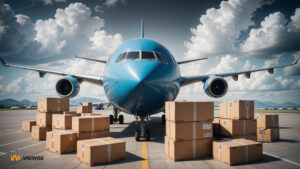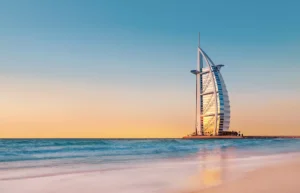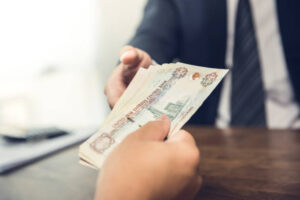Navigating Dubai’s Customs Regulations: A Guide for Businesses
Unlocking the Gate: Dubai Customs Clearance Isn’t a Puzzle If You Know the Moves
When you’re running a business in Dubai or just about to set one up there’s a particular checkpoint where many stumble: customs. Goods in, goods out, paperwork, classifications, duties… It’s a tangle. But let’s make something clear: navigating Dubai’s customs regulations isn’t about who shouts the loudest or throws money at the problem. It’s about precision, timing, and knowing the rhythm of the system. That’s where firms like Al Usood Legal Consultancy come in not just untying red tape, but weaving your operations seamlessly into it.
Tariff Codes, Not Guesswork: Harmonizing with the Harmonized System
Your shipments don’t get through customs based on what you call them they go through based on how they’re classified. Dubai, like most of the world, follows the Harmonized System (HS) code. The six-digit tariff code assigned to your goods determines everything from duty rates to clearance procedures.
One misstep here a mistyped number, an inaccurate description and you could be looking at delays, fines, or worse, seizure. At Al Usood, this is the sort of detail that doesn’t get a second glance because it gets done right the first time. Knowing the difference between “textile fabric” and “coated woven polyester composite” isn’t trivial. It’s revenue protection.
The Import Code Your Customs Access Pass
Want to import into Dubai? You’ll need an Import Export Code (IEC) from Dubai Customs. No IEC, no access to the ports. The registration process isn’t complicated, but it’s not “click-and-go” either. You’ll need a valid trade license, a UAE-based company, and an account on Dubai Trade Portal.
The beauty of working with firms that know their way around? They don’t just fill out forms they handle the follow-through, the nudges, the calls, the behind-the-scenes check-ins that prevent “pending” from turning into “problem.”
Free Zones: Not a Free-for-All
Here’s where many businesses get lost. Yes, Free Zones in Dubai have customs perks zero duties on goods staying within the zone, streamlined documentation but they also come with their own set of customs checkpoints when moving goods into the mainland.
For instance, if you’re in Jebel Ali Free Zone and need to bring electronics into Deira for retail? That triggers duty payments and customs clearance at the zone exit. And no, declaring “but it’s our stock” doesn’t exempt you from compliance. Al Usood helps businesses align their supply chain models with the actual, enforceable rules not the myths floating around startup forums.
The 5% Rule—and the Exceptions That Make It Complex
Most goods entering Dubai are subject to a standard 5% import duty, but that’s just the headline. Dig deeper, and you’ll find categories with higher rates like alcohol or tobacco and others with none at all, such as specific raw materials or foodstuffs. Value-added tax (VAT) at 5% may also apply on top.
Calculating your landed cost in Dubai without understanding this layered duty structure is like budgeting for a road trip without checking fuel prices. Al Usood doesn’t guess your duty; we compute it with precision and legal foresight.
Inspection Zones: Where Compliance Gets Real
Once your shipment hits Dubai’s ports whether at Jebel Ali, Port Rashid, or Dubai International Airport it may be flagged for inspection. This is where customs physically check your containers. Random? Sometimes. But often triggered by inconsistencies in documentation, vague product names, or flagged supplier origins.
There’s no charm offensive here. Either your papers match the cargo or they don’t. Al Usood helps clients prepare for inspection before it happens because compliance should never be retroactive.
Certificates Speak Louder Than Words
Dubai Customs doesn’t work on trust it works on certificates. Certificate of Origin, Halal Certificates, Health Certificates (for consumables), Conformity Certificates for regulated electronics the list changes depending on what you’re importing.
And here’s the catch: the certificate isn’t enough. It needs to be issued by an approved body, translated into Arabic where necessary, and submitted on time. Al Usood ensures every box is ticket, every seal validated. We don’t just check documents; we verify their acceptability.
Automation Doesn’t Mean Simplicity: Meet Mirsal 2
Dubai Customs’ online declaration platform, Mirsal 2, is advanced. But user-friendly? Let’s just say it assumes you already know what you’re doing. Filing an Import Declaration isn’t about typing quickly; it’s about knowing which form variation to submit, which permit to attach, and when to pre-clear vs. post-clear.
This is why our clients don’t “use Mirsal” they let Al Usood do it for them. We’re not just users of the system; we understand its intent and its quirks.
FAQs – Decoding Common Customs Questions in Dubai
Q1: Can I import used equipment into Dubai for my business?
Yes, but it depends on the type. Some used machinery requires pre-approval or inspection certifications to ensure compliance with UAE safety standards. Al Usood can help assess and arrange documentation.
Q2: Are personal goods taxed the same as commercial shipments?
No. Personal goods for residents or tourists have different thresholds. Commercial goods are taxed and inspected under business regulations.
Q3: Do I need a local sponsor to register with Dubai Customs?
Not if you’re operating from a Free Zone. But mainland companies typically need a UAE national sponsor to obtain a trade license an essential prerequisite to customs registration.
Q4: What happens if I under-declare the value of my goods?
Dubai Customs uses a risk-based audit system. If caught, you could face fines, delays, or blacklisting. Accurate valuation is not negotiable and Al Usood ensures you stay within the line.
Q5: How long does customs clearance take in Dubai?
If all documentation is accurate and there are no inspections, clearance can happen in a matter of hours. But any discrepancies or flagged issues can delay it for days. Preparation is everything.
Dubai is a business-friendly hub, but customs clearance isn’t just a formality it’s a legal filter, a control gate, and a reputational checkpoint all rolled into one. Al Usood Legal Consultancy doesn’t just help you pass through that gate. We help you pass through with confidence, consistency, and compliance woven into every shipment.
Because in Dubai, the right paperwork doesn’t just move goods. It moves businesses forward.



